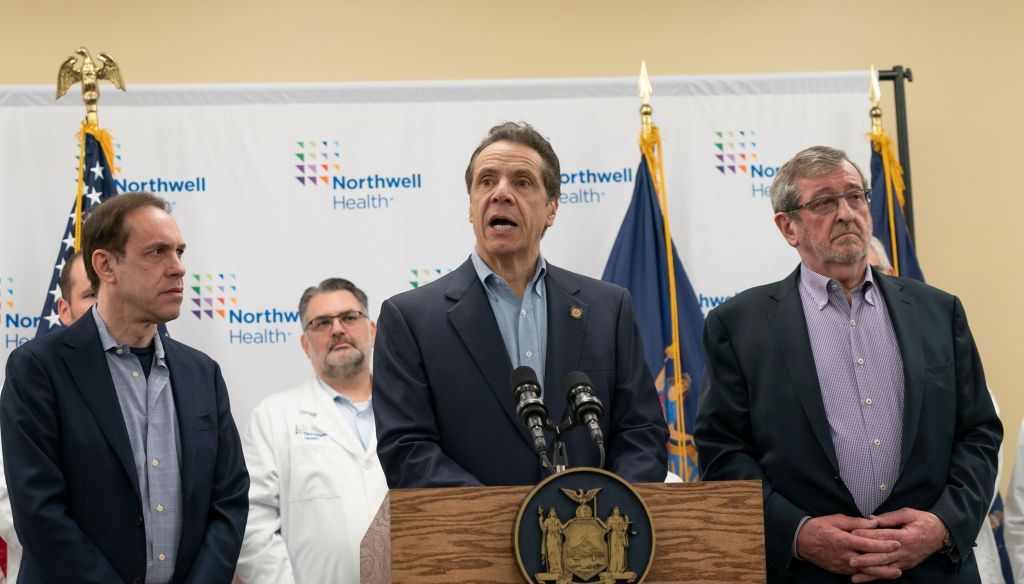[ad_1]
With officials across the world scrambling to help businesses that may suffer because of the coronavirus outbreak, New York City is offering interest-free loans and cash grants to small enterprises that could see a significant decline in sales. The multimillion-dollar initiative comes as the stock market tumbles and the number of infected patients multiplies. For the city’s smaller museums and galleries, the financial buoy could be a lifesaver in a time when fewer people are visiting art spaces and attending events put on by them.
“We are facing an existential crisis,” Jane Stephenson, executive director of the Elizabeth Foundation for the Arts (EFA), told ARTnews. “People should be aware that arts organizations are going to face difficulties if we don’t get some relief.”
Though there are only 36 confirmed coronavirus cases in New York City so far, businesses based there are already facing up to the possibility that the outbreak isn’t ending anytime soon. Nonprofits that operate on tight budgets with grant money contingent on certain activities taking place—like open artist studios, workshops, and exhibitions—are likely to weather significant economic costs resulting from the cancelation of spring exhibitions and galas. Meanwhile, smaller commercial galleries are also feeling the pressure as collectors tighten their purse strings and head for the Hamptons to wait out the epidemic.
“We are still coming to work,” said Kathleen Gilrain, executive director of the Brooklyn gallery Smack Mellon. “But we are trying to figure out what changes we are going to need.”
The nonprofit gallery is scheduled to have its spring benefit in May, but it may ultimately have to postpone the gala until September if the coronavirus continues to spread throughout New York. And with only four people on staff in the office, Gilrain worries that infection could decimate the gallery’s ability to function. “We are a small staff. We are used to coming in even when we don’t feel well. That has changed. If people aren’t feeling well, then you don’t come in.”
But there’s a chance that a gallery like Smack Mellon may be eligible for the city’s relief funds. The city is offering small businesses with fewer than 5 employees a grant to cover 40 percent of payroll costs for two months (an average of $6,000) to help retain employees. Businesses with fewer than 100 employers who have seen their sales decrease by 25 percent or more will also be eligible for zero-interest loans of up to $75,000 to help mitigate profit losses.
The city’s Department of Small Business Services is spearheading the effort. A spokesperson for the agency told ARTnews that details on eligibility are still being worked through and should be finalized in the next week or so.
[See a complete guide to the coronavirus’s impact on museums, fairs, and more around the world.]
Last week, Congress passed an $8 billion coronavirus emergency funding package that left New York with $35 million. Governor Andrew Cuomo described the appropriation as “ludicrous” and “a drop in the bucket.” Earlier that week, Cuomo approved $40 million in emergency spending for the administration’s response to the disease. On Saturday, he declared a state of emergency in New York. On Tuesday, he ordered the National Guard to create a containment zone around Westchester County, the epicenter of New York’s outbreak.
The coronavirus has already caused a cascade of lost time and money for arts organizations like EFA. According to Stephenson, staff are routinely disinfecting the foundation’s 12-story building, sterilizing door handles, elevator buttons, and bathrooms. This has become a costly but necessary exercise because some artists with studios at the foundation are older than 60 and therefore at higher risk of contracting the disease. Nevertheless, artists who can’t afford to risk infection are afraid to travel on the subway to their studios. “As artists go into financial difficulty,” Stephenson added, “they might not be able to pay their monthly studio fees.”
With the potential decrease of income-earning programs like the studios and printmaking workshops, Stephenson has looked for other financial opportunities to balance the budget as the art world wades through the coronavirus. Last week, EFA participated in the Armory Show, where it sold editioned artist prints. But according to the foundation’s director, attendance was down enough that the organization received only about a fifth of the income it normally gets at fairs.
“Whenever there is a disaster in which the economy falls apart, artists and arts organizations suffer the most and the quickest,” Stephenson said. “If nonprofits don’t get relief, then we will see what we had during the 2008 financial crisis: small arts organizations will cease to exist.”
[ad_2]
Source link

